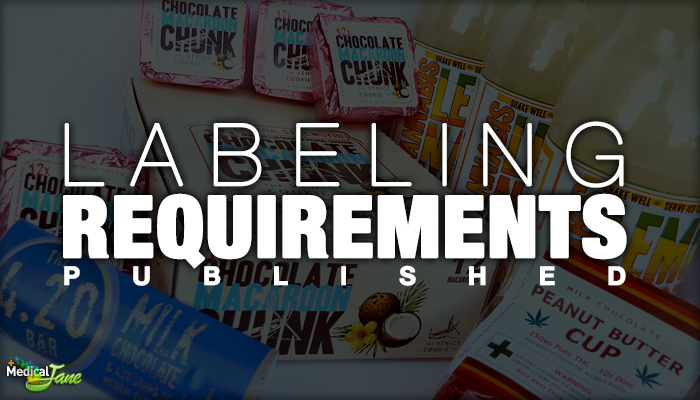
Colorado Infused Edible Regulations And Their Impact
Colorado Released “Permanent Rules” For Retail Marijuana
The Marijuana Enforcement Division (MED) of Colorado’s Department of Revenue (CDOR) published the “Permanent Rules Related to the Colorado Retail Marijuana Code” on September 9th, 2013. The 144-page document outlines regulations for cultivation, advertising, licensing, and much more.
Without a doubt, one of the most prominent sections of the prospective retail marijuana market will be the realm of infused products, and marijuana edibles in particular. The regulations facing the infused edible market were created following deliberations with representatives from the governor’s office, cannabis industry leaders, and the Colorado Department of Public Health and the Environment (CDPHE).
Colorado Will Require Labels For Marijuana Infused Edibles
When considering the new regulations in Colorado, it’s obvious that infused edible regulation will be largely centered around labeling. As FoodSafetyNetwork.com points out, there are 3 types of labeling covered in the infused edible section of the Permanent Rules document. It discusses labels to display the following: (1) Cultivation facts, (2) Nutrition facts, and (3) Potency.
The ‘Cultivation Facts’ label will be a requirement for all infused edible products. Following the lines of the “seed-to-sale” program, infused edible products must have a label that includes the license number of the original cultivation facility. Similarly, companies must list any non-organic pesticides the growers used.
“If a product is lab tested, the potency results must be displayed in milligrams and total servings of THC.”
Although the second type of label is not required, they will certainly play a major role in the infused edible industry. Companies will be allowed to include a nutritional fact panel (like most food products), as well as labels to inform patients whether products comply with special diets. For example, companies can add “Vegan” and “gluten-free” labels to their products if applicable.
Finally, the Colorado Department of Revenue decided to require a label for potency and contaminate testing as well. If a product is lab tested, the potency results must be displayed in milligrams and total servings of THC. If not tested, products must have a warning that reads, “The marijuana product contained within this package has not been tested for potency, consume with caution.”
Similarly, companies will be required to display the results of contaminate testing. Most of these tests are either pass or fail, so understanding them should be simple by nature. Similar to the potency testing, products must be distributed with a label in the event that no contaminate testing was performed.
Marijuana Infused Edible Regulations: A Look Ahead
It wouldn’t be practical for Colorado to require lab testing, as there are not enough capable facilities in the state. However, the Marijuana Enforcement Division is working with the Colorado Department of Public Health and the Environment to develop third-party testing standards to increase the availability of testing.
With that being said, pure market economics will likely cause testing practices to spread. I can’t imagine many people choosing an edible product that has not been tested for potency and contaminates over one that has. For some people the choice is health related, but some just like the peace of mind knowing what they are ingesting.
To take that idea one step further, there is a contingency of support for more regulations. For instance, Dixie Elixers has taken it upon themselves to ensure the highest quality of their products. The company sought guidance on federal packaging and labeling standards for non-marijuana ingredients from an FDA lawyer and has established stringent hygiene protocols using a Hazard Analysis and Critical Control Points (HACCP) plan.
“I wouldn’t be surprised if the required infused edible practices spread to medical marijuana states.”
Whether other Colorado companies, and regulations, will follow Dixie Elixers’ lead remains to be seen. However, one can be sure that the nation is watching how the state proceeds. The push for cannabis, both medical and recreational, gained instant momentum with the recent announcements regarding federal cannabis policy, and more states are considering the legalization and regulation of cannabis.
Colorado already has a history of setting the standard for cannabis regulation. After becoming the second state to allow the recreational use of cannabis for those over 21, Washington seems to be using Colorado as a guide. In fact, the Washington Liquor Control Board has asked a number of leaders in the Colorado cannabis industry to consult on the drafting regulations.
It would be logical to expect a good portion of the “Permanent Rules Related to the Colorado Retail Marijuana Code” to find it’s way into Washington’s future regulations. Even further, I wouldn’t be surprised if the required infused edible practices spread to medical marijuana states. Colorado is often a trendsetter in these regards, and clearly labeling edibles only makes sense.